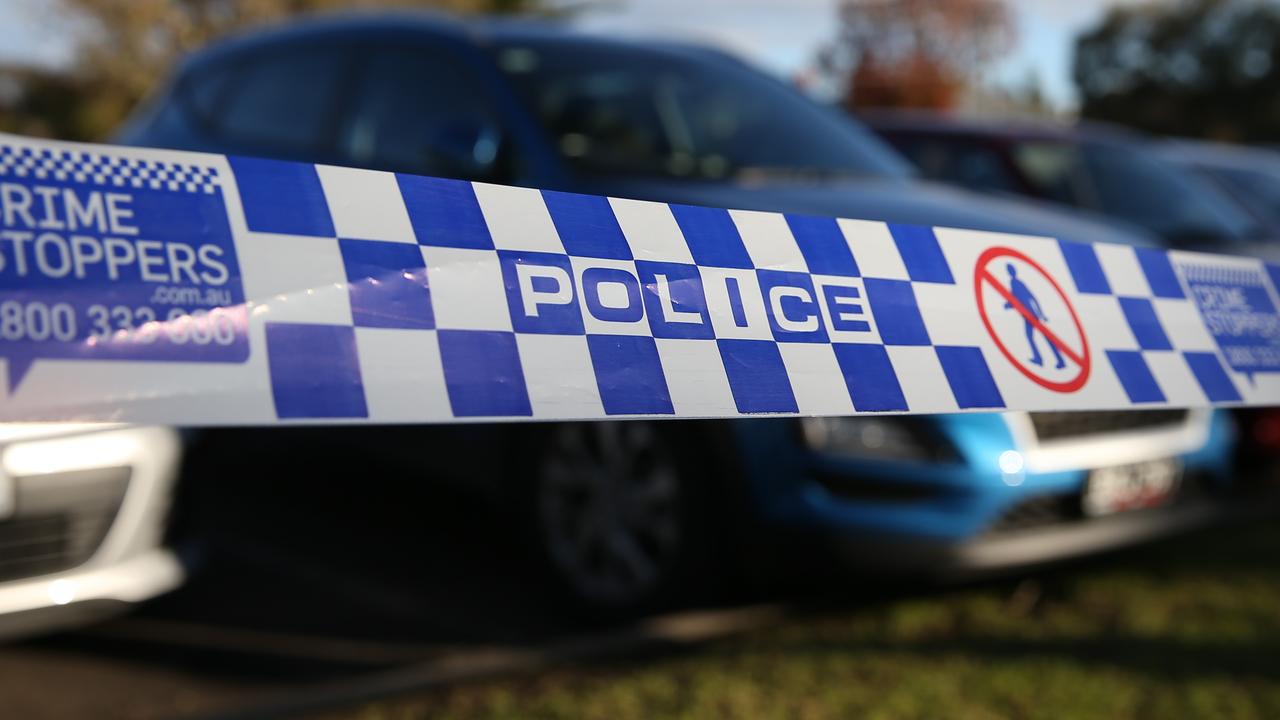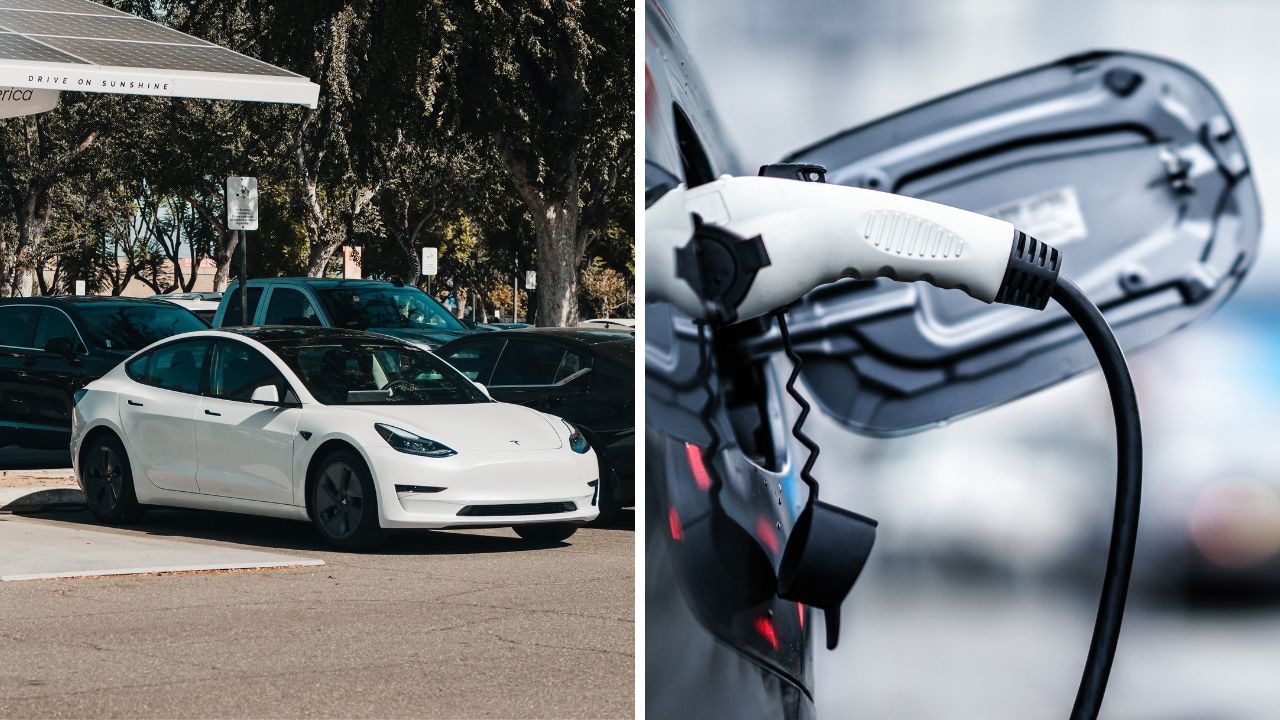Aussie warns of $45k Tesla mistake
An Aussie who found a cheap second-hand Tesla online was stopped from buying it at the last moment by his mechanic who knew it was trouble.
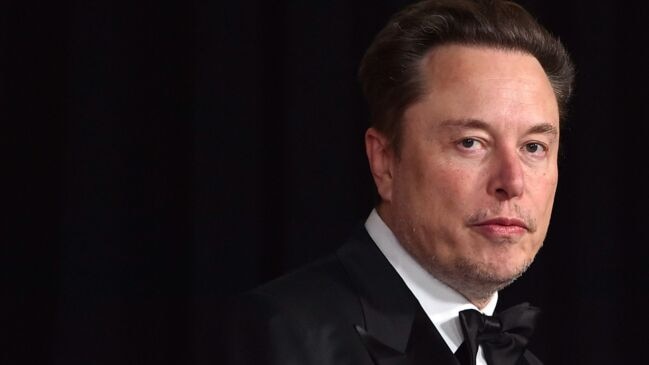
On the Road
Don't miss out on the headlines from On the Road. Followed categories will be added to My News.
An Aussie who found a cheap second-hand Tesla online was stopped from buying it at the last moment by his mechanic who knew it was a write-off.
Jeff Zarif, from Wollongong in Central NSW, was talking to a seller on Facebook marketplace — and managed to bring down the price from $56,000 to $45,000 for the used Tesla.
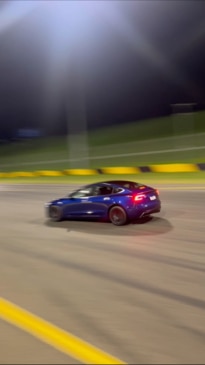
The seller said the electric car needed to be sold as soon as possible so Mr Zarif texted his mechanic, Mitchel Pedavoli, to see if the paperwork was legit.
It’s a good job that he did, as Mr Zarif said he would have wasted tens of thousands of dollars because the car had also voided its warranty.
“I would have been stung because those Tesla’s are only as good as their warranty really,” he told Yahoo News.
It is illegal to sell a written-off car in NSW but Mr Zarif claimed the seller registered it in Queensland instead where the legislation is different.
It is legal to sell a car that is not roadworthy in Queensland but new rules are set to be introduced which would more closely line up with NSW laws.
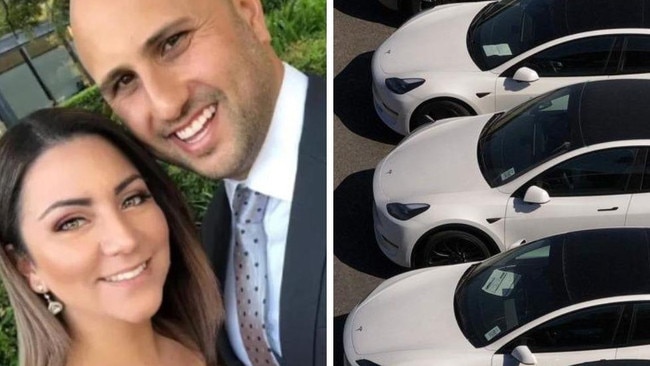
Queensland is one of the only states without this kind of legislation. Other states have had them in place since 2010.
Mr Zarif said that he immediately backed out of the purchase. The advertisement was soon taken down after he did.
It was not the first time that Mr Pedavoli saved him from wasting money on a broken car with a simple pre-purchase inspection.
Mr Pedavoli offers the service for $250. When Mr Zarif previously asked him to check out a Jeep Grand Cherokee, he found out it had a cracked cylinder head.
That part would have cost Mr Zarif between $5,000 and $6,000 if he had chosen to go ahead with the purchase and replace it himself.
“Some people are putting their life savings into a car and if you find out it is dodgy it’s probably not the best feeling,” Mr Pedavoli told the publication.
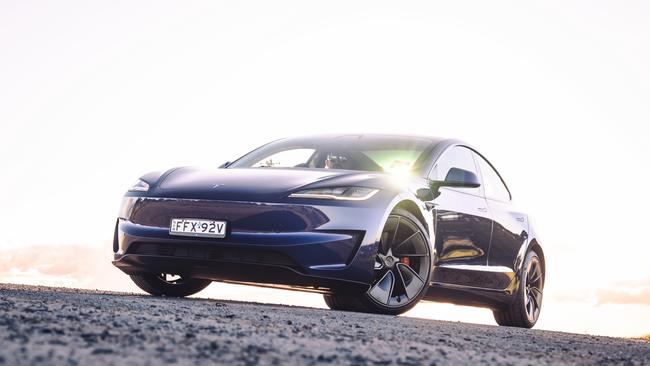
During the pre-purchase inspection Mr Pedavoli thoroughly searches for any accident damage or leaks on the vehicle as well as a simple VIN verification.
A car’s VIN holds valuable information like if there is money owed on it, warranty details, if it has been written off in a collision, flood or fire or if any of the parts have been dismantled and replaced.
Mr Pedavoli said the most common things he has found while inspecting second-hand cars was accident damage, oil leaks and tampered odometers.
Worrying sight for Tesla fans
A viral picture has shone a light on plummeting Tesla sales, as rows of unsold cars have been left to pile up in an electric vehicle ‘graveyard’ in Melbourne.
Around 2000 Teslas arrive at Port Melbourne every month but with sales falling, many have been left to sit and ‘wait for buyers’, according to Peter Anderson, of the Victorian Transport Association.
“All of a sudden we’ve got a huge backlog of Teslas that aren’t moving,” Mr Anderson told 7News.
“Teslas usually come into this country pre-sold. These ones aren’t, they’re sitting here.”
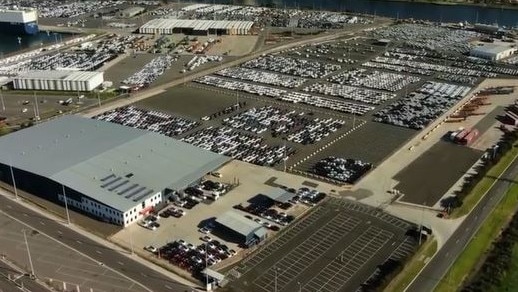
It comes as Tesla sales dropped a further 20 per cent in May after a 44 per cent drop in April, despite recent price cuts in a bid to compete with a growing Chinese EV market.
A brand new Tesla Model Y is now $11,400 cheaper and Elon Musk’s company is not the only automaker cutting prices.
The Peugeot e2008 has been given a massive cut from $63,000 to $39,990. On the lower end of the market, a GWM Ora is down 20 per cent to $35,990.
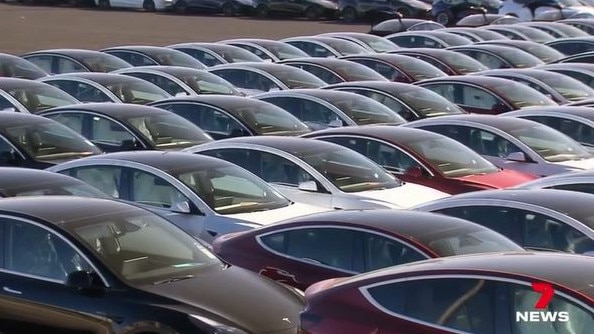
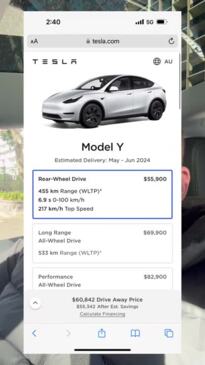
Competitors thriving
The drop in Tesla sales is in direct contrast to Chinese rival BYD, which has just posted a record sales month.
BYD sold more than 1900 electric cars in May, well up on its previous record of 1622 vehicles.
Overall, EV car sales grew by more than 10 per cent in May, after a 5 per cent dip in April. So far this year, EV sales are up almost 27 per cent, but sales of hybrids have doubled in the same period.
Car experts say EV sales growth has slowed as the industry moves past the early adopter phase, Mainstream buyers are yet to be convinced to take the leap, amid concerns about limited charging infrastructure and poor resale figures.
Last year, the federal government slashed its forecast for the take-up of EVs, after Labor predicted EVs would make up 89 per cent of new car sales by 2030 prior to the election.
Now the federal transport department believes they’ll only make up 27 per cent.
Speaking on Sky News Caleb Bond said the market “has really softened” for electric vehicles.
“People are not buying them in the same numbers they were because they’ve worked out it’s all a bit of a sham.
“And one of the great shams is that there is no resale value in these things.”
Bond added old electric cars were also depreciating quickly because technology has improved every year.
“It’s no surprise people aren’t buying them.”
Hyundai chief operating officer John Kett said earlier this week that the industry needed to improve consumer confidence around resale values and battery longevity.
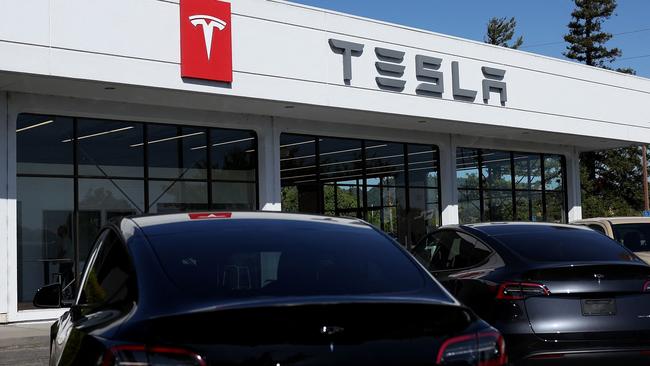
Chinese EVs hit with massive tariffs
The European Union warned on Wednesday it would slap additional tariffs of up to 38 percent on Chinese electric car imports from next month after an anti-subsidy probe, a move that risks provoking a bitter trade war.
Brussels angered Beijing by launching the investigation last year in a bid to defend European manufacturers in the face of a surge of cheaper Chinese imports.
The Chinese commerce ministry slammed the decision as “naked protectionist behaviour”, in an angry statement after the announcement.
There is also dissent within the EU with Germany, a major trade partner to China, saying the tariffs would harm German companies.
The European Commission has proposed a provisional hike of tariffs on Chinese manufacturers: 17.4 percent for market major BYD, 20 percent for Geely and 38.1 percent for SAIC.
The EU said the amount depended on the level of state subsidies received by the firms.
Electric car producers in China that cooperated with the EU will face a tariff of 21 percent, while those that did not cooperate would be subject to a 38.1 percent duty.
This would be on top of the current import duty of 10 percent. The commission pointed to “unfair subsidisation” in China, which it said “is causing a threat of economic injury” to EU electric car makers.
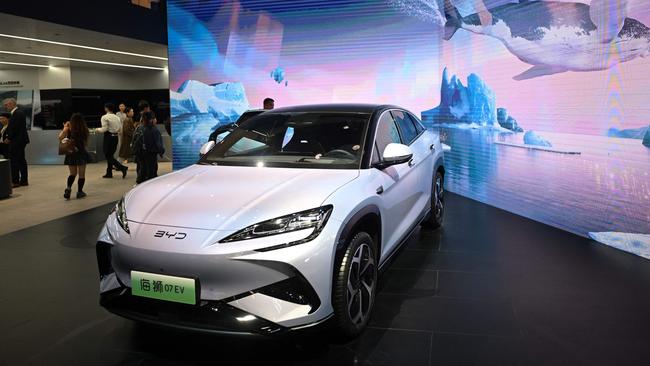
‘Space for negotiation’
A Chinese commerce ministry spokesperson said the EU’s decision risked “creating and escalating trade friction”.
Foreign ministry spokesman Lin Jian warned: “China will take all necessary measures to firmly safeguard its legitimate rights and interests.” To halt the extra tariffs being levied, Beijing and Brussels must resolve the subsidies issue.
“The commission went out of its way to show there is space for negotiation,” said Francesca Ghiretti, a fellow on economic security at Washington-based think tank CSIS.
But Ghiretti told AFP it was not exactly clear what China could offer “that would actually mitigate the existing concerns”.
The tariffs will apply provisionally from July 4 and then definitively from November unless there is a qualified majority of EU states -- 15 countries representing at least 65 percent of the bloc’s population -- voting against the move.
The EU tariffs, while high, are lower than the 100-percent rate the United States imposed from last month on Chinese electric cars.
German concerns
Europe’s automotive sector is the jewel in its industrial crown -- boasting iconic brands such as Mercedes and Ferrari -- but it faces threats including China’s head-start in the switch to electric.
Brussels wants to put the brakes on what it claims were unfair practices undercutting Europe’s automakers, which face a 2035 deadline to phase out new sales of combustion engine cars.
Germany, Hungary and Sweden previously expressed concerns about slapping higher duties.
German Transport Minister Volker Wissing said the “punitive tariffs hit German companies” in a social media post.
“Cars must become cheaper through more competition, open markets and significantly better business conditions in the EU, not through trade war and market isolation,” Wissing said.
The tariffs “will not solve the challenges” facing the industry, Germany’s VDA auto industry association president Hildegard Mueller said, instead calling for efforts to make Europe more attractive as a place for manufacturers.
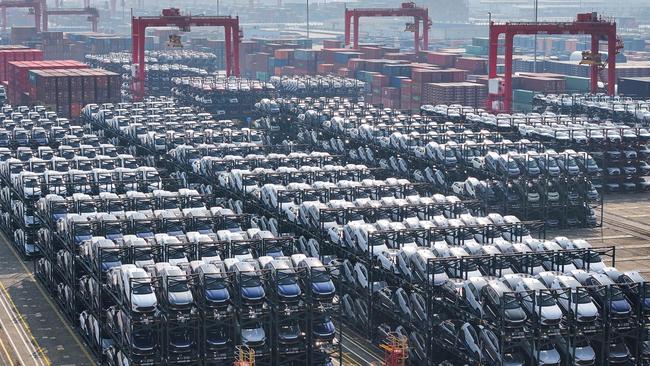
Luc Chatel, head of the French auto industry association, insisted on the importance of a level playing field, while Italian Industry Minister Adolfo Urso welcomed the commission’s decision.
China is an important market for German car makers, while Hungary, which a month ago hosted a visit by Chinese President Xi Jinping, is clearing land for a BYD factory to be built next year.
France’s Renault, Peugeot and Citroen are virtually absent in China. Electric automaker Tesla is the only company that has asked the EU to provide its own duty rate calculated based on evidence it has submitted.
Retaliation
Chinese media ramped up threats that Beijing could target EU exports, including pork and dairy products, ahead of Wednesday’s decision.
In January, China launched an anti-dumping investigation into brandy imported from EU, in a move seen as targeting France, which pushed for the commission’s probe.
A group representing French cognac producers said it was “deeply concerned” about possible Chinese retaliation.
Despite the fears, expert Ghiretti said “an escalatory trade war” between the EU and China was not “surely on the table” and could be avoided.
China is the world’s biggest car exporter and Europe is a critical market for it.
EU imports of EVs from China mushroomed from around 57,000 in 2020 to around 437,000 in 2023, the US-based Peterson Institute for International Economics said.
Germany’s Kiel Institute for the World Economy said a 20-percent tariff would mean 125,000 fewer Chinese electric cars to the EU, worth almost $4 billion.
Former Top Gear host calls on UK government
In the UK, former Top Gear host Quentin Willson, has called on the UK government to “manage consumer sentiment” as it seeks to abolish traditional petrol and diesel cars over the next 10 years.
Speaking before a session of the UK parliament’s Transport Committee last month, the former car dealer and journalist turned lobbyist blasted the “torrent of stuff from right-wing and vested interests” for putting the brakes on consumer appetite for EVs.
The panel heard evidence from several experts about whether the UK’s goal of banning internal combustion engine (ICE) vehicles by 2035 — originally slated for 2030 — was “realistic and achievable”.
“It is achievable but it is being held back by myths, misinformation and disinformation,” Willson said.
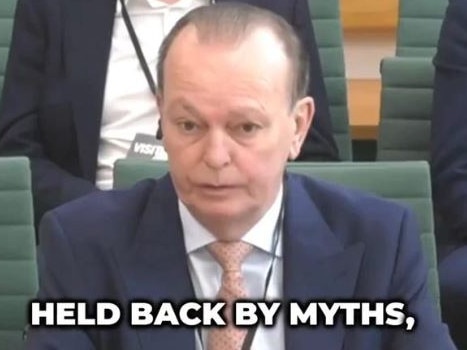

“Consumers need to have confidence in electric cars, they need to want to buy them, because if they don’t, manufacturers won’t sell them and there is this self-destructive fulfilling circle where we don’t get consumer interest to drive the market forward. As a campaign group we counted one tabloid newspaper that had 160 continuous anti-EV stories without a break, and we see this also in the broadsheets.”
Willson insisted that “in terms of the technology, the cars work”.
“We have over a million electric battery only and plug-in cars on our roads, and people have happily folded them into their lives and you see them strobing up and down the motorways, London is now full of them,” he said.
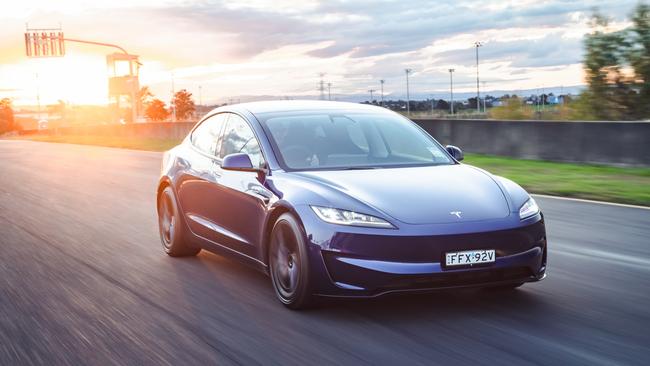
In the UK, which now leads Europe in EV sales, headline figures showed surging demand for EVs to reach 16.9 per cent market share in April, but this was “sustained entirely by business buyers, as private retail demand continues to drop”, according to the Society of Motor Manufacturers and Traders (SMMT).
Sales are currently being propped up by “fleet” purchases courtesy of massive government subsidies that allow employees to write off the cost of leasing against income tax.
The UK’s Zero Emission Vehicle (ZEV) mandate requires 52 per cent of new cars to be EVs by 2028, rising to 80 per cent by 2030 and 100 per cent by 2035.
— with Brielle Burns and AFP
Originally published as Aussie warns of $45k Tesla mistake


